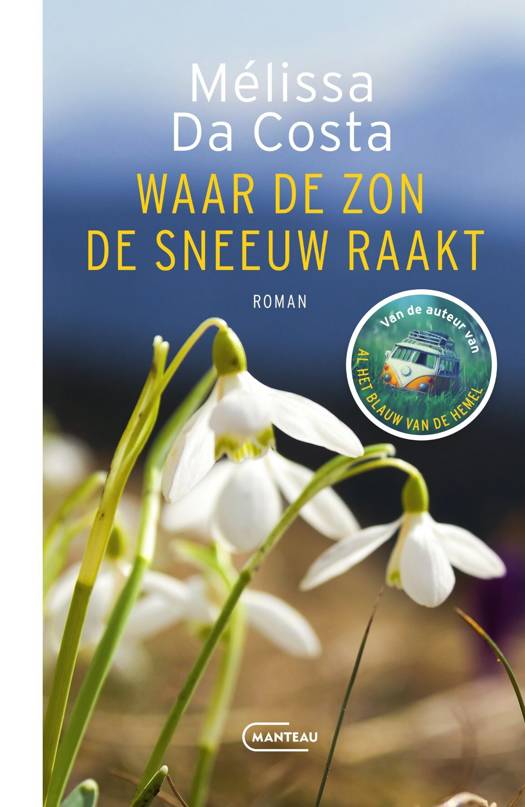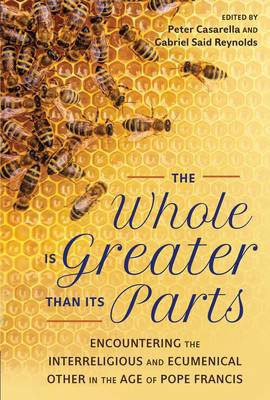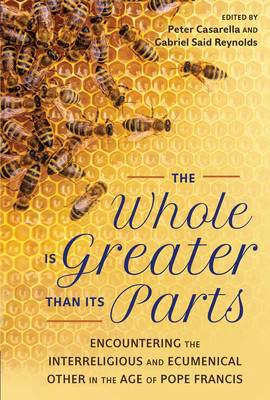
- Afhalen na 1 uur in een winkel met voorraad
- Gratis thuislevering in België vanaf € 30
- Ruim aanbod met 7 miljoen producten
- Afhalen na 1 uur in een winkel met voorraad
- Gratis thuislevering in België vanaf € 30
- Ruim aanbod met 7 miljoen producten
Zoeken
Whole Is Greater Than Its Parts Encountering the Interreligious and Ecumenical Other in the Age of Pope Francis
Encountering the Interreligious and Ecumenical Other in the Age of Pope Francis
Gabriel Reynolds
Paperback | Engels
€ 53,45
+ 106 punten
Omschrijving
Pope Francis has applied the principle of "the whole is greater than its parts" to ecumenical and interreligious contexts. For example, Pope Francis often speaks about a unity that is greater than its parts in terms of the polyhedron. Unity born of a polyhedron preserves difference, and unity born of the sphere reinforces homogeneity. The epoch of globalization invites us to think about the cultural and economic exchanges in the world today in such a way that difference is never abandoned for the sake of wanton hegemony. Pope Francis has thus applied this new notion of encounter to questions of ecumenism and interreligious dialogue. Christians can be encouraged not only to seek greater unity amongst themselves but also to bear witness to their faith to seek greater unity among Christians and, with no less vigor, to advance understanding with adherents to non-Christian systems of belief. In this process, Protestants, Catholics, Muslims, Christians, and Jews can learn about one another through a consideration of the complementarities between the two kinds of dialogue. The more we address the specific challenges and blessings of each particular dialogue, the more we become true agents of dialogue for the Church and for the world.
Specificaties
Betrokkenen
- Auteur(s):
- Uitgeverij:
Inhoud
- Aantal bladzijden:
- 350
- Taal:
- Engels
Eigenschappen
- Productcode (EAN):
- 9780824597139
- Verschijningsdatum:
- 1/08/2020
- Uitvoering:
- Paperback
- Formaat:
- Trade paperback (VS)
- Afmetingen:
- 127 mm x 196 mm
- Gewicht:
- 276 g

Alleen bij Standaard Boekhandel
+ 106 punten op je klantenkaart van Standaard Boekhandel
Beoordelingen
We publiceren alleen reviews die voldoen aan de voorwaarden voor reviews. Bekijk onze voorwaarden voor reviews.











